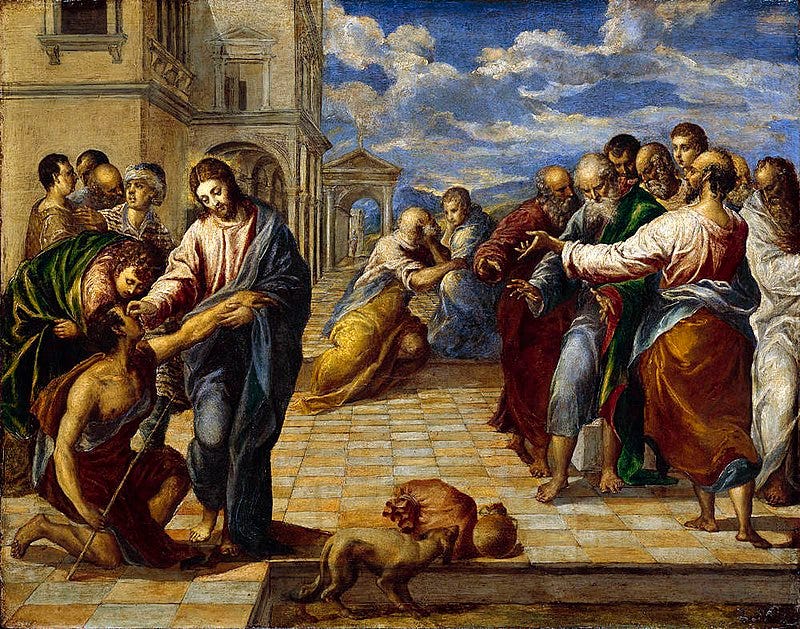How do the most prolific people produce so much?
War, death, madness, God, and colossal ego
I accidentally published twice on Monday (sorry, human error!)—so paid subscribers got my essay and video about J.S. Mill and the deeper springs of human character early. I was therefore going to take a pause today, but that didn’t seem right for a post about productivity…
How do the most prolific people produce so much?
Here are four ideas I have long nurtured as suspicions for what makes the most productive people quite so successful, inspired by a recent conversation I had that I’m hoping to bring to you soon. Many people will have aspects of more than one of these criteria—Beethoven, for example.
Instability. Think of the most prolific writers—D.H. Lawrence (seventy-five volumes), Charles Dickens (thirty volumes), Samuel Johnson (twenty-three volumes, plus a whole dictionary and edition of Shakespeare)—and you think of people who are, in some way, mentally unsettled. The recent Joyce Carol Oates profile reinforced this to me. And I learned that Gwern thinks partial mood disorder is behind some people’s productivity.
Death (and God). John Stuart Mill (thirty-three volumes) was spurred into the late work (On Liberty, Autobiography, Subjection, &c.) by a death scare in 1854. He wrote in his diary that the night cometh when no man can work, a bible quotation which Johnson once had carved on his watch. The most prolific composer, J.S. Bach, might not have been unstable (who knows?), but he wrote for God, and the Lutheran church emphasises preparing for death. Michelangelo was always working to the glory of God, preparing his soul (factor in his work running the building site at St. Peters and he gets way more productive: that building wouldn’t exist without his project management). Montaigne wrote his essays because he was running out of time.
Ego. This sounds obvious, but someone like Frank Lloyd Wright was driven by a monstrous sense that he had a mission to save architecture, which is no small part of why more than half his life’s work was done after retirement age. Virginia Woolf, prolific considering her early death (include her diaries) was similar. Noel Coward, who could have been more productive but still produced an awful lot, shares with them a childhood that, directly or indirectly, nurtured a sense of excellence: they had to be the ones to do this. It was part of living up to their idea of themselves.
Disruption. If you want to build fifty churches, like Christopher Wren, plus St. Pauls, and assorted Oxford and Cambridge buildings, the Great Fire of London helps. Not only does this force you to switch from an explore to exploit phase, it makes more likely that the conditions for productivity—decision making, resources, cooperation, speed—will be in place. When London sits in ashes, stakeholder management gets a little easier: you can only do major projects at that point. Proximity to plague and war did Shakespeare, Newton, and many others no harm on this front. The right sort of restrictions create channels for energy to flow productively.



I think all of these apply to LBJ. Always blown away by his energy and work ethic when I pick up Caro.
The fear of “running out of time” gets emphasised a lot in the lyrics of Hamilton. I’ll have to look up and see whether that’s historically accurate and if it partially explains his productivity with regards to the Federalist Papers.
Lovely to see the El Greco. It’s interesting how his genius with depicting perspective ,body and form in the later works was erroneously attributed to astigmatism for many years.
Very good.
Also: The need for cash.
Some writers, I think of Anthony Trollope and Edgar Rice Burroughs, were prolific at the beginning of their careers because they needed money, and early developed habits of productivity which they maintained even when they were comparatively comfortable.